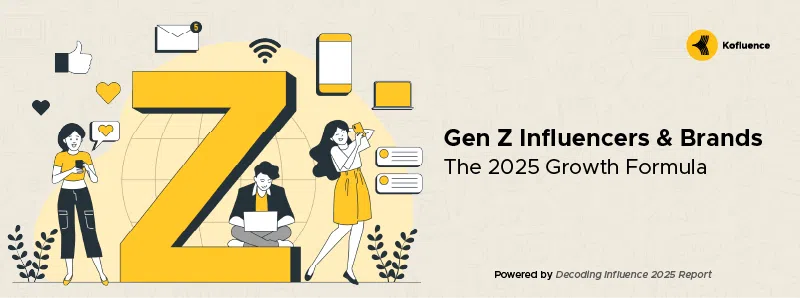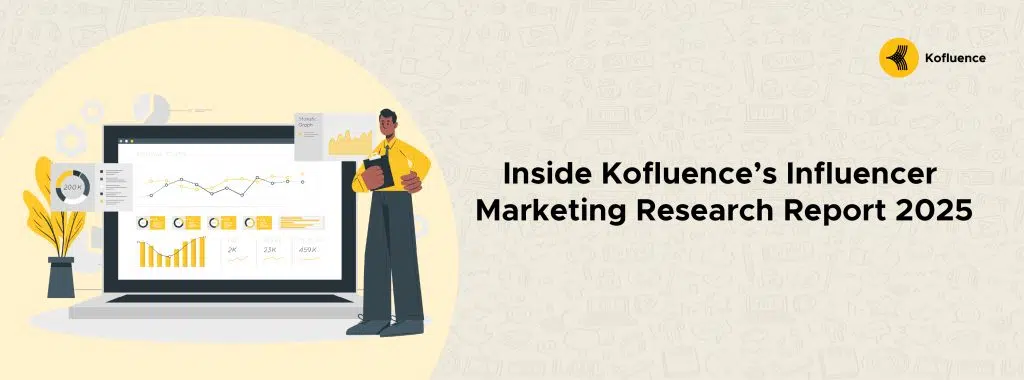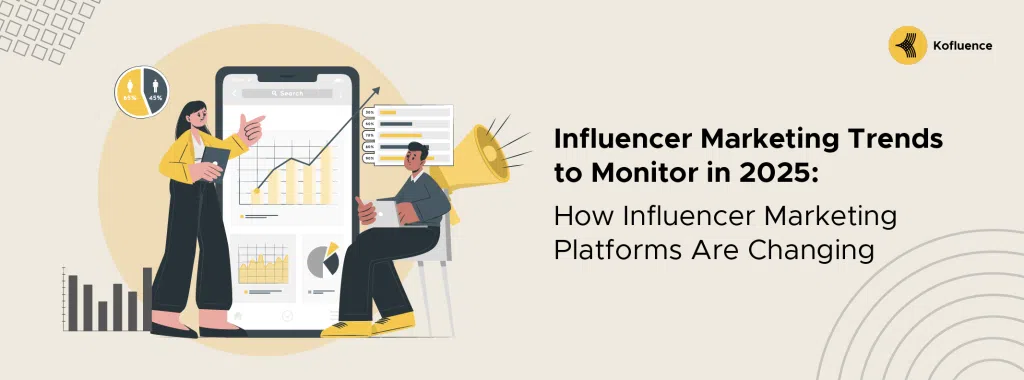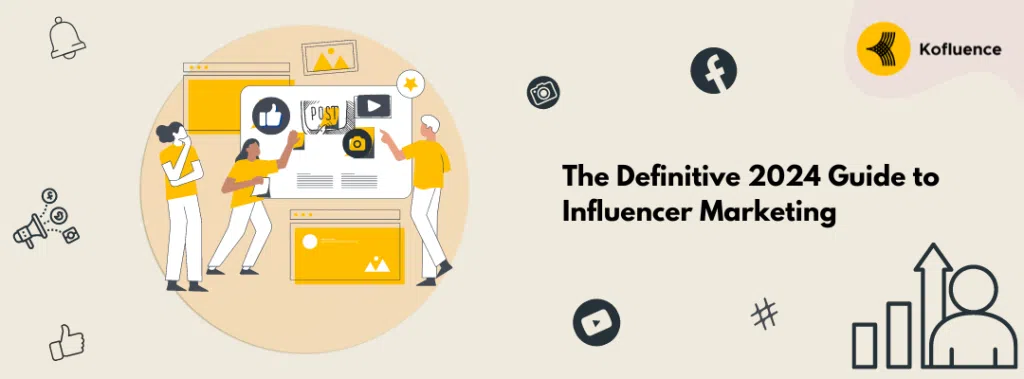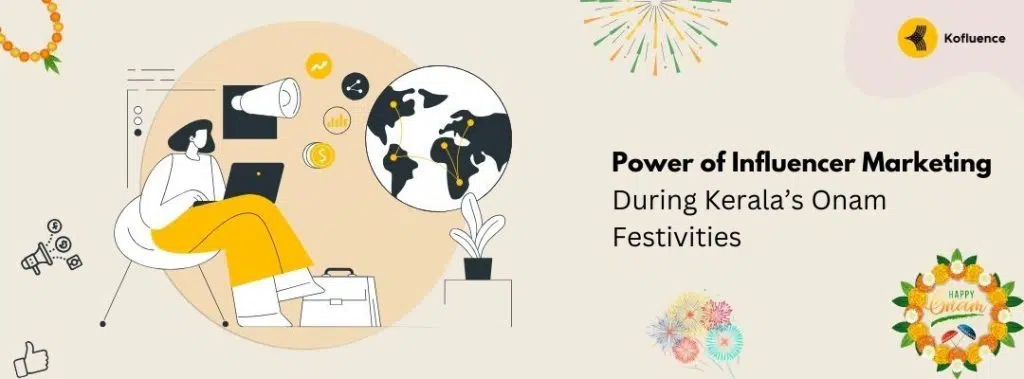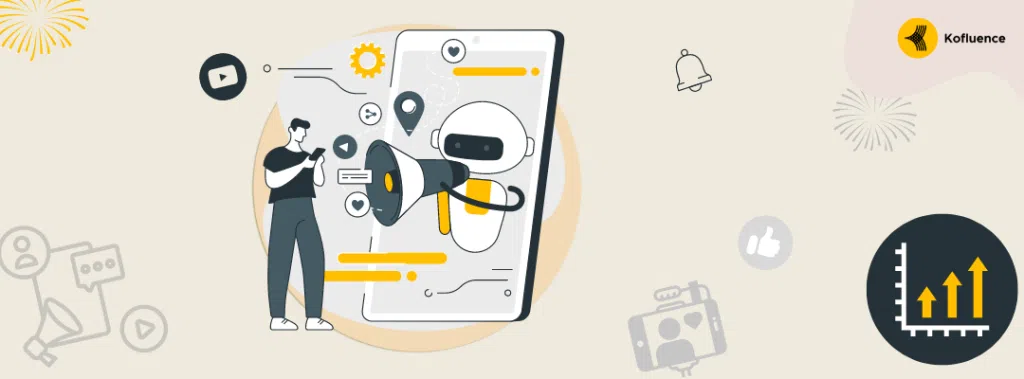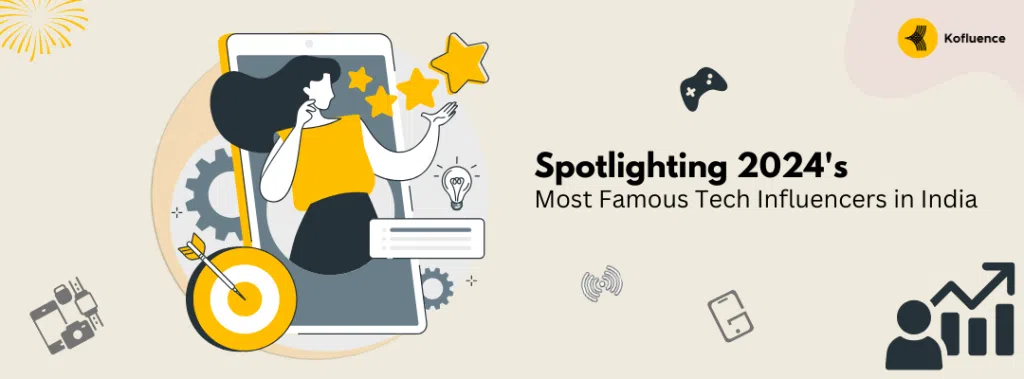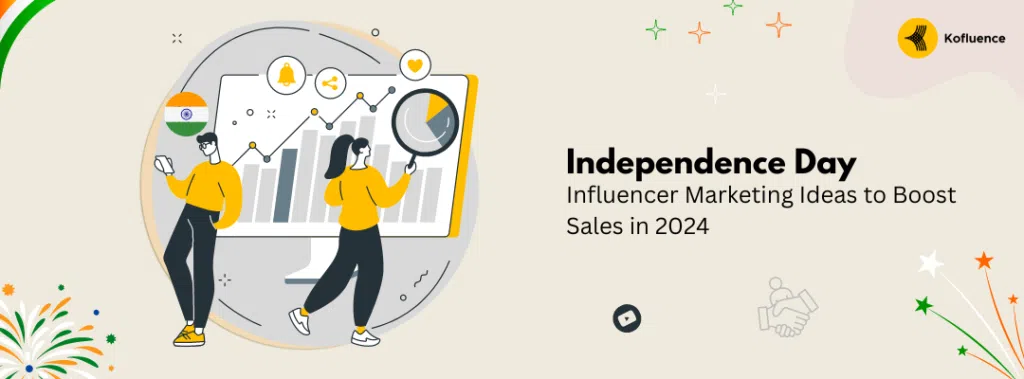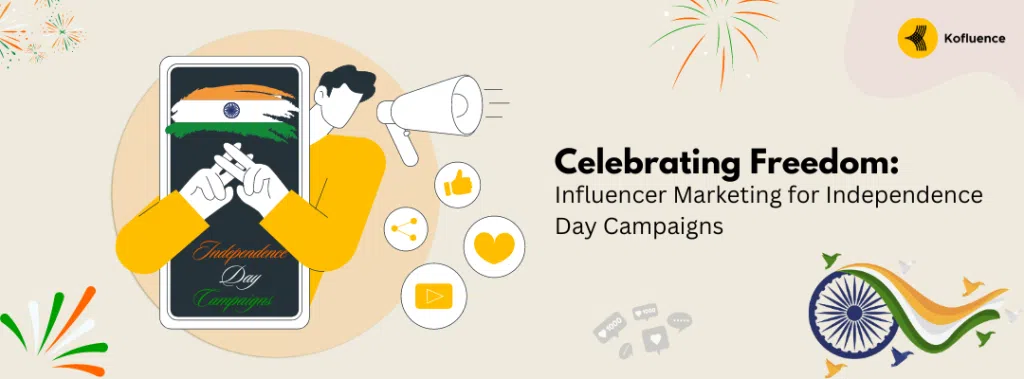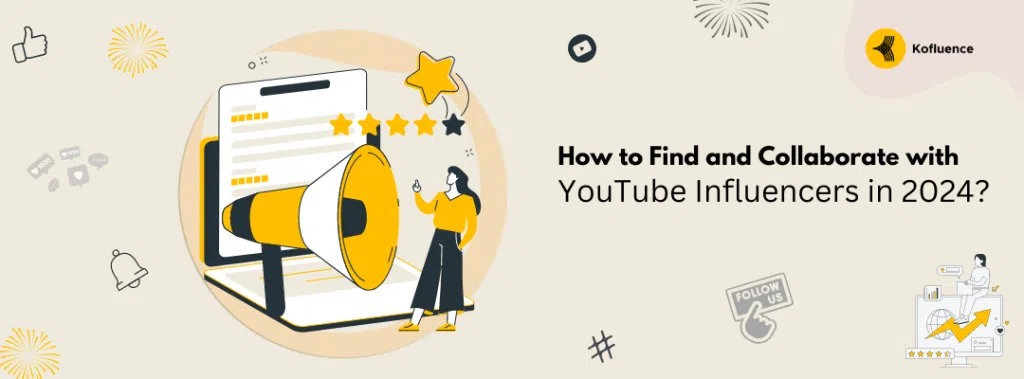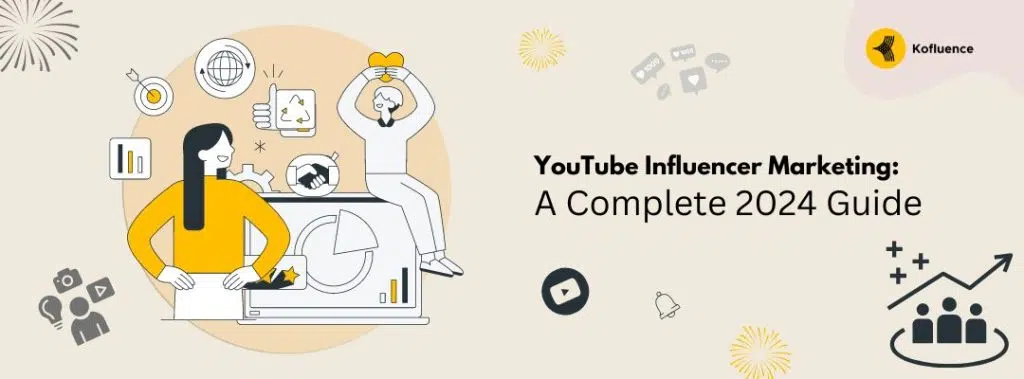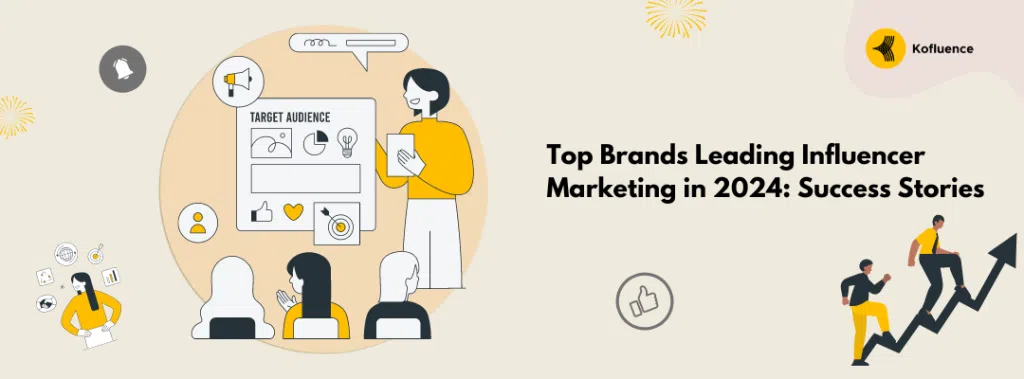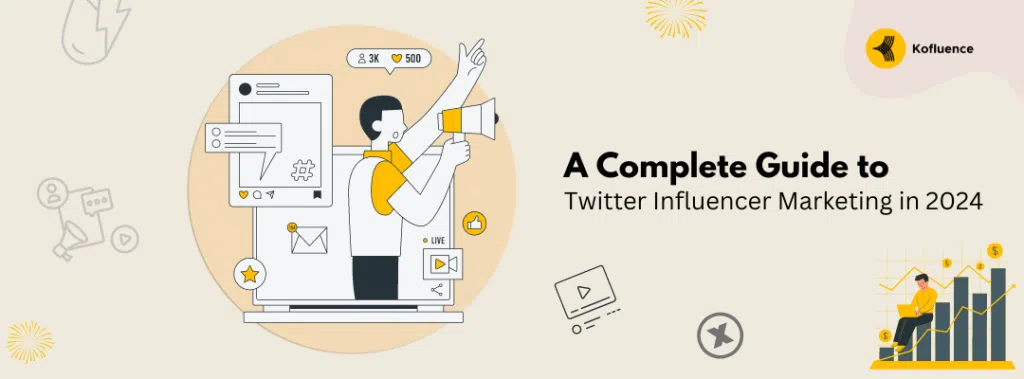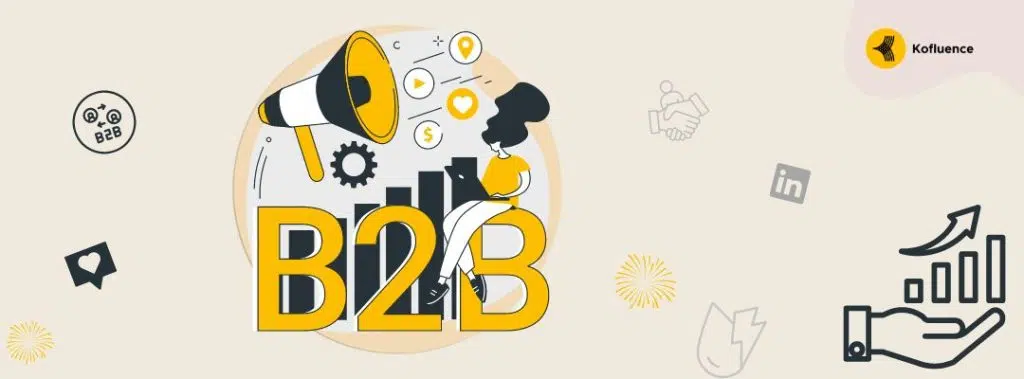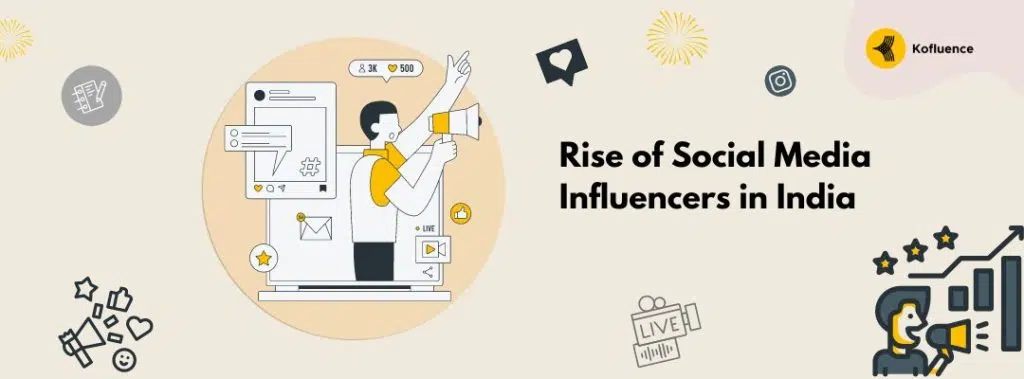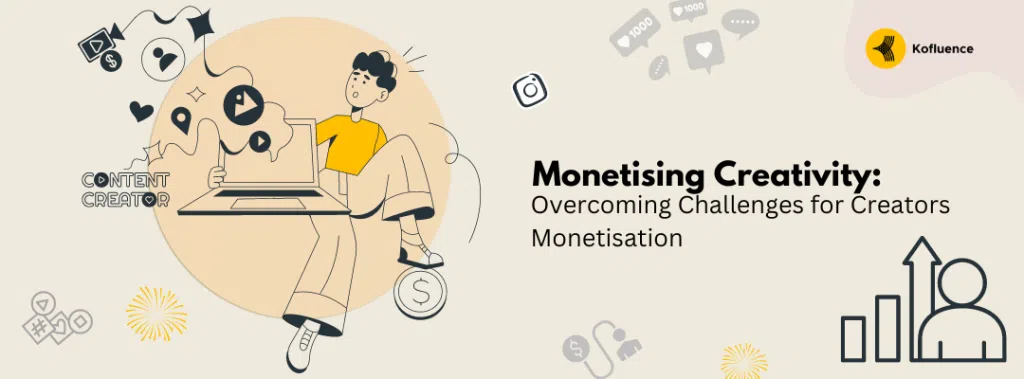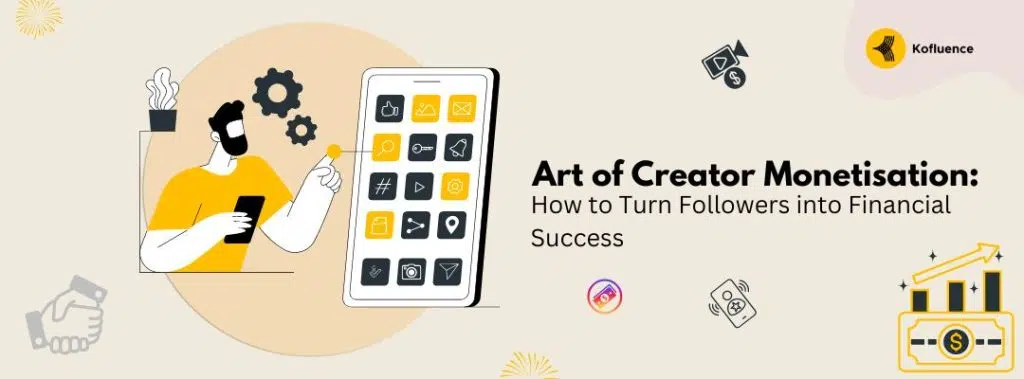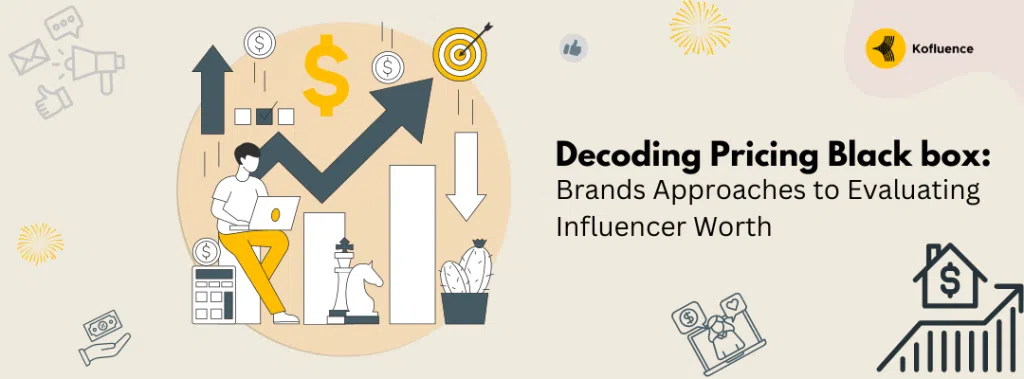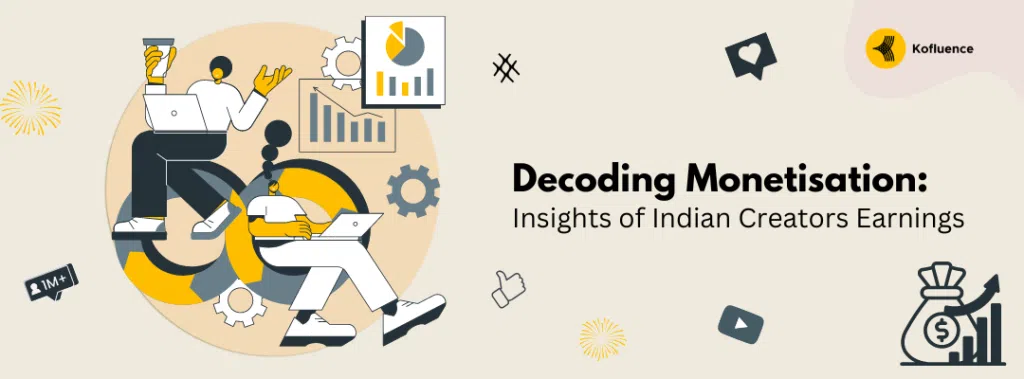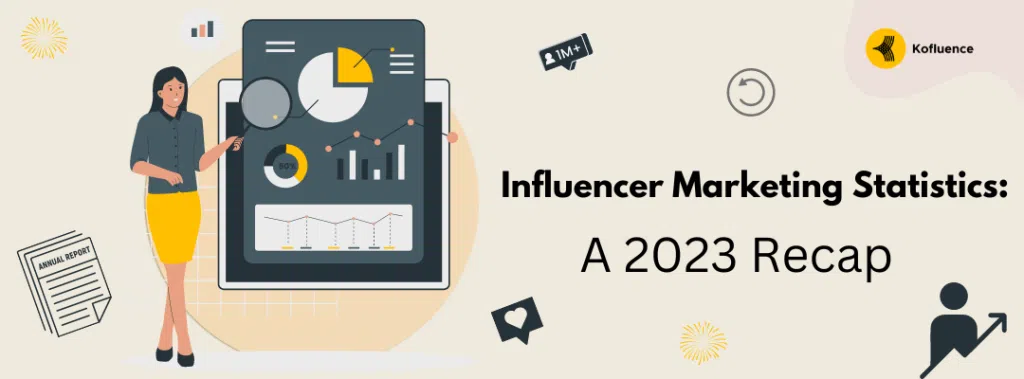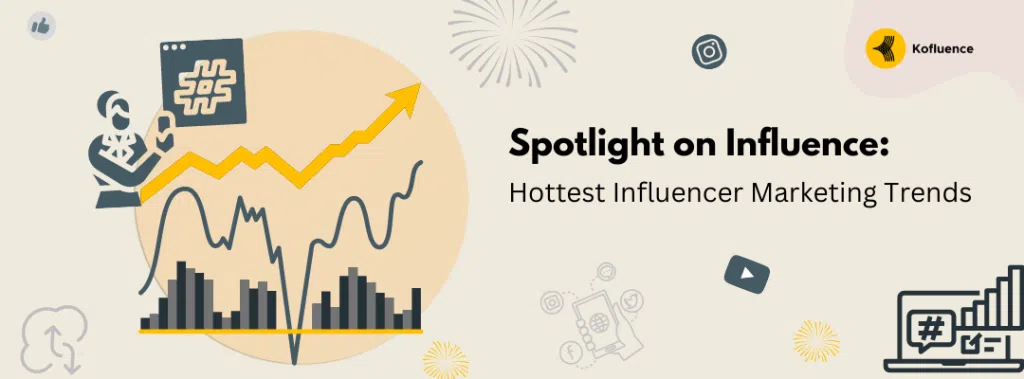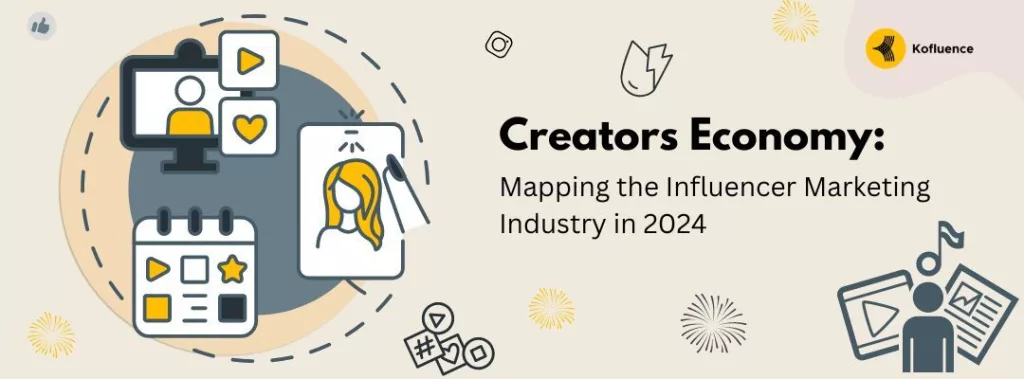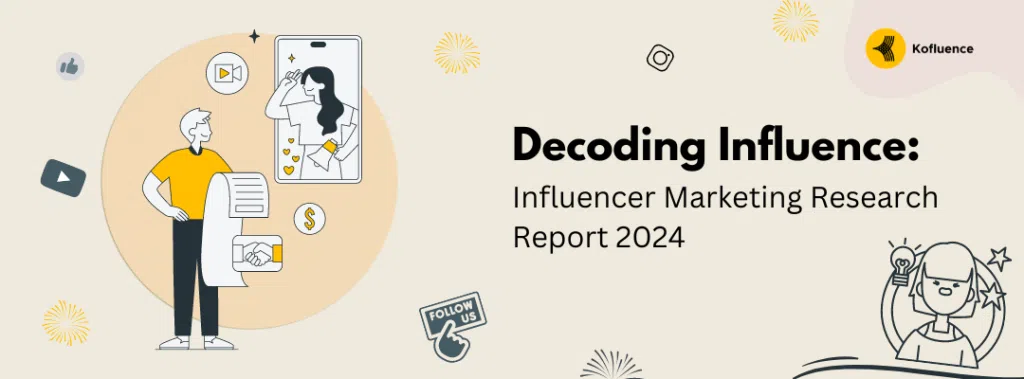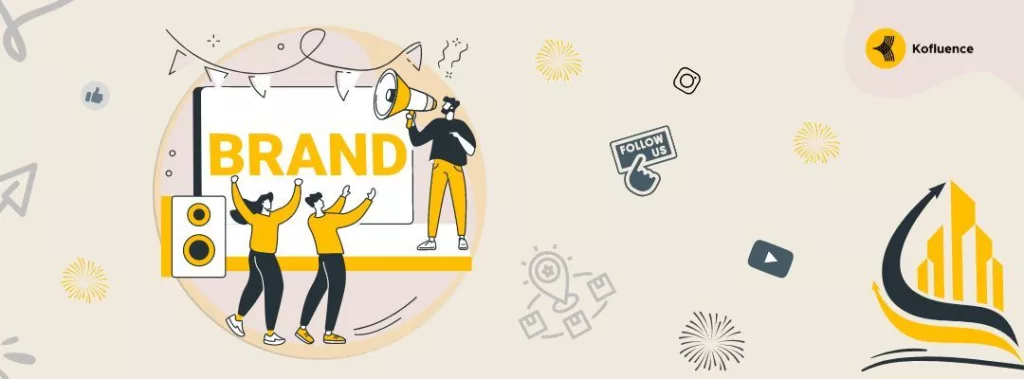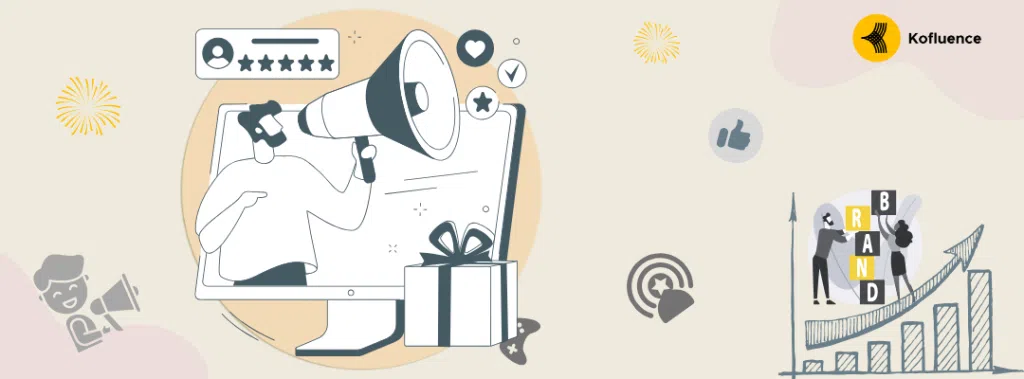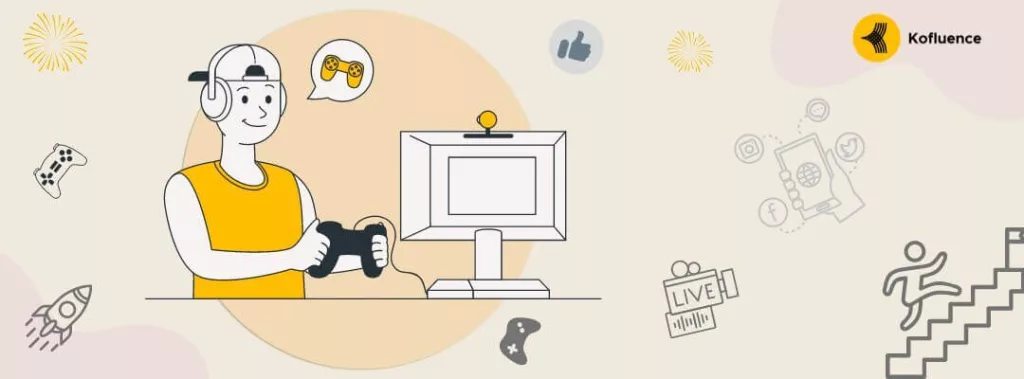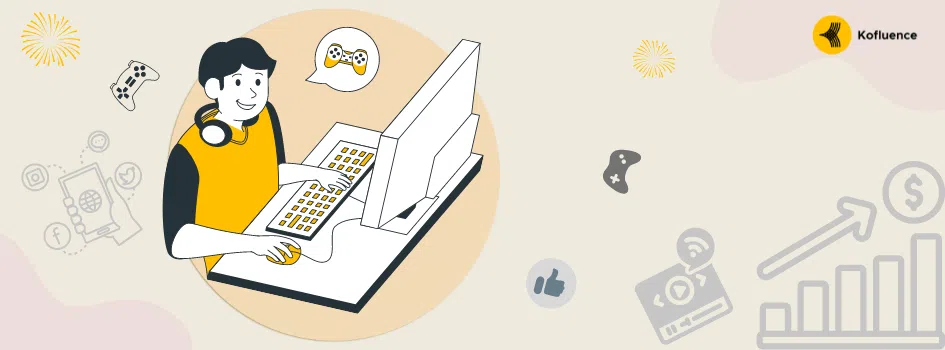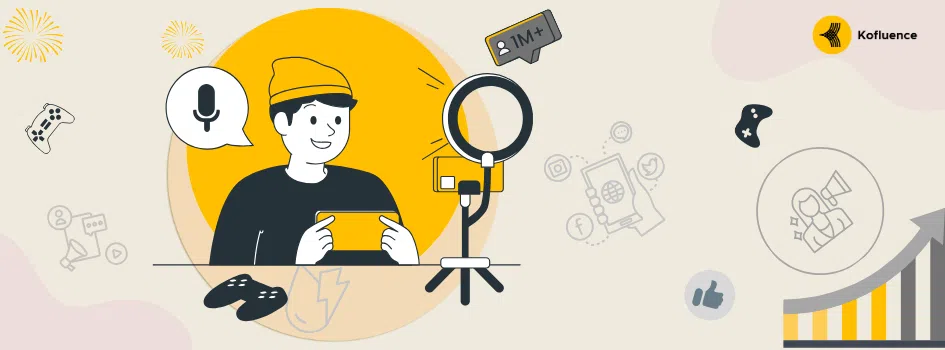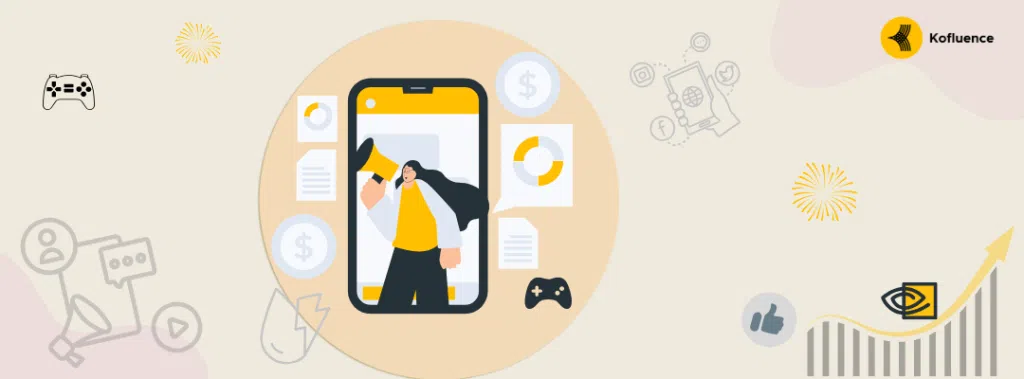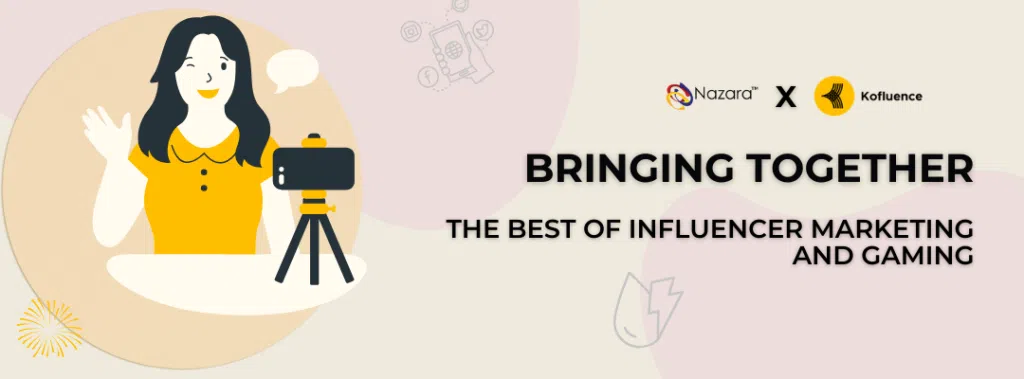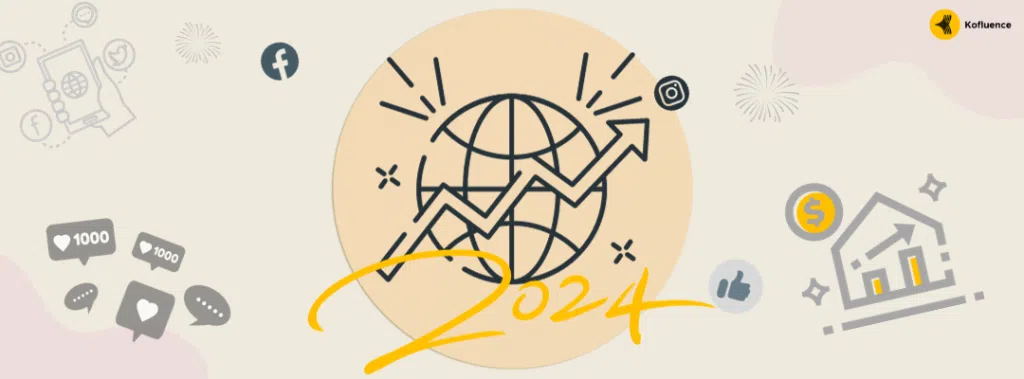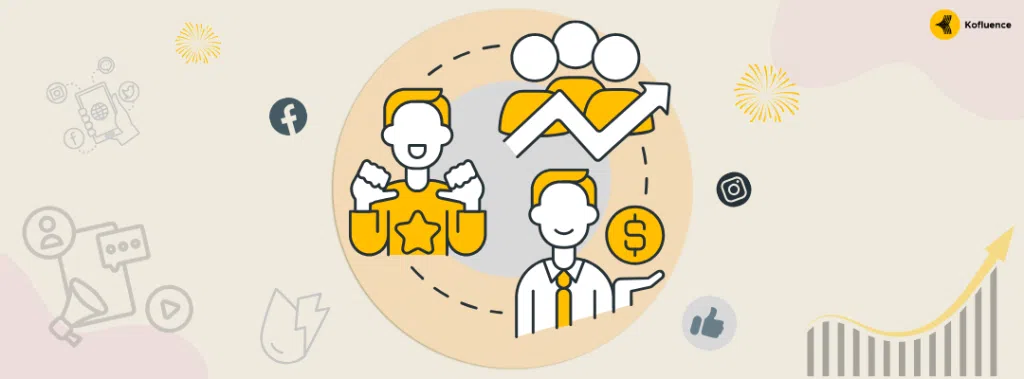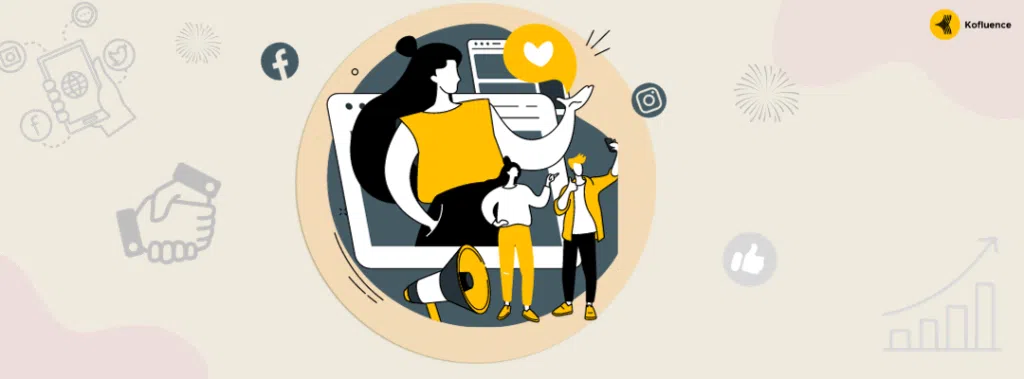Gone are the days of saying that influencer marketing is the next big thing. Influencer marketing has already established itself as a powerful tool in the marketer’s arsenal, but the landscape is constantly evolving. As brands seek new ways to stay ahead in an increasingly competitive market, Artificial Intelligence (AI) has emerged as the driving force behind the next phase of influencer marketing. AI influencer marketing is reshaping the industry, presenting innovative solutions to address the challenges brands face in reaching their target audience and fostering meaningful connections. In this blog, we delve into the dynamic world of AI influencer marketing and explore the transformative impact it has on brands, ushering in a new era of engagement, authenticity, and brand success.
What is AI influencer marketing?
AI influencer marketing involves the use of AI technologies to identify, analyze, and engage with potential influencers on behalf of a brand. The goal is to identify individuals who have a large and engaged following on social media, and who are likely to have an interest in a brand’s products or services. This can be achieved through a variety of methods, including sentiment analysis, machine learning algorithms, and natural language processing.
AI influencer marketing is different from traditional influencer marketing in that it takes a more data-driven approach. Rather than relying on personal relationships or intuition, AI influencer marketing uses data to identify potential influencers and analyze their engagement rates, demographics, and interests. This data is then used to create a targeted campaign that is more likely to resonate with the influencer’s followers. For example, if an influencer has a large following of fashion enthusiasts, a fashion brand could create a campaign that showcases their latest clothing line.
How is AI used in influencer marketing?
In the ever-evolving landscape of marketing, artificial intelligence (AI) has emerged as a game-changer, revolutionizing various industries. One domain where AI’s impact is particularly profound is influencer marketing. By leveraging the capabilities of AI, brands can unlock a multitude of opportunities and tap into the immense potential of this influential form of advertising.
Enhancing Targeting Precision:
AI empowers brands to delve deep into consumer insights and preferences, enabling them to identify the ideal target audience for influencer campaigns. Through advanced algorithms and machine learning, AI analyzes vast amounts of data, ranging from social media interactions to browsing behavior, to create detailed customer profiles. This newfound precision ensures that the right influencers are selected to engage with the most receptive audience.
Streamlining Campaign Management:
Efficient campaign management is critical for success in influencer marketing. AI-powered tools automate various tasks such as influencer discovery, contract management, content approval, and performance tracking. This not only saves valuable time and resources but also ensures smoother collaboration between brands and influencers, fostering stronger partnerships.
Predictive Analytics and ROI Optimization:
AI’s predictive analytics capabilities allow brands to forecast the outcomes of influencer campaigns with greater accuracy. By analyzing historical data and market trends, AI algorithms generate insights that enable brands to optimize their strategies for maximum return on investment (ROI). This data-driven approach helps brands make informed decisions and allocate resources effectively, resulting in higher campaign success rates.
What is the role of AI in influencer marketing?
Influencer marketing has become a force to be reckoned with, and AI has revolutionized the way marketers approach their campaigns. Recent statistics reveal that an astonishing 61.4% of marketers have embraced AI, fully understanding its immense potential to drive results. Among the many areas where AI has left a profound impact, content production stands out, with 44.4% of marketers harnessing the power of AI-powered tools to create captivating and personalized content. And a significant 54.5% of marketers hold a positive view, recognizing that AI will be a game-changer in the field of influencer marketing. Let’s look at some ways in which AI is playing a major role in Influencer Marketing
Authentic Influencer Selection:
AI enables brands to identify influencers whose values align with their brand identity and audience. By analyzing social media content, sentiment analysis, and engagement metrics, AI can assess an influencer’s authenticity and credibility. This ensures that partnerships are built on genuine connections, fostering trust and resonance with the audience.
Personalized Content Creation:
AI-powered content creation tools assist influencers in crafting compelling and personalized content. Natural language processing (NLP) algorithms can generate captions, suggest hashtags, or even recommend storytelling techniques that resonate with the target audience. This level of personalization enhances the authenticity of the influencer’s message, resulting in higher audience engagement.
Real-Time Performance Optimization:
AI algorithms can monitor and analyze campaign performance in real time. This allows brands to adapt their strategies on the fly, optimize content, and maximize impact. AI-driven insights help identify emerging trends, consumer sentiment shifts, and competitor activities, enabling brands to stay ahead of the curve and maintain relevance in the fast-paced influencer marketing landscape.
What is a Virtual Influencer in AI influencer marketing? Why do brands employ them?
Our increasingly digitized society has paved the way for a new kind of influencer: the virtual influencer. Virtual influencers are computer-generated or fictional characters designed to look like real people. They only exist in the digital world and are a big part of AI influencer marketing. They are created using CGI (computer-generated imagery) and AI technology, which makes them look realistic and human-like. They are designed to represent a certain lifestyle or personality, which is attractive to the target audience. Virtual influencers and AI influencer marketing can be used to promote a wide range of products, from fashion and beauty to food and travel.
While virtual influencers have their benefits, they also come with their challenges. Using them in your AI influencer marketing campaign may bring up issues relating to a lack of authenticity or an invasion of privacy. It is up to brands to decide whether virtual influencers are the right fit for their marketing strategy, considering the goals of their campaign, their target audience, and the potential limitations and drawbacks of using virtual influencers. But what drives brands to employ virtual influencers, and what impact do they have on the industry?
Unparalleled Creative Freedom:
Virtual influencers transcend the boundaries of the physical world, offering brands unparalleled creative freedom in their storytelling. AI empowers brands to customize every aspect of a virtual influencer’s appearance, personality, and brand alignment. This level of control allows for highly curated and tailored narratives that capture the audience’s imagination and create lasting brand impressions.
Authenticity Redefined:
Virtual influencers present a new dimension of authenticity in influencer marketing. While they may not possess physical form, their digital personas are meticulously crafted to resonate with specific target audiences. Virtual influencers have the ability to embody and champion causes that align with brand values, resulting in meaningful connections and social impact.
Expansion of Reach and Impact:
Virtual influencers are not limited by geographical boundaries or availability constraints, making them accessible to global audiences 24/7. Their digital nature allows for seamless integration across various online platforms, amplifying brand reach and enabling impactful storytelling on a global scale. This expanded reach has the potential to transform brand awareness and drive unprecedented engagement.
What is the impact of Artificial Intelligence (AI) on Brand Influencer Marketing?
As brand influencer marketing continues to evolve, artificial intelligence (AI) has emerged as a catalyst for transformative change. With its ability to process vast amounts of data and extract valuable insights, AI empowers brands to navigate the complex landscape of influencer marketing and achieve exceptional results.
Data-Driven Decision-Making:
AI algorithms analyze vast amounts of data, including social media interactions, consumer behavior, and market trends. This data-driven approach allows brands to make informed decisions when selecting influencers, crafting content strategies, and allocating resources. By leveraging AI-powered analytics, brands gain a competitive edge in maximizing the impact of their influencer marketing campaigns.
Improved Efficiency and ROI:
AI streamlines various aspects of brand influencer marketing, optimizing campaign management and resource allocation. By automating repetitive tasks and providing real-time performance analytics, AI helps brands identify areas for improvement and make adjustments in real time. This enhances efficiency, minimizes costs, and maximizes return on investment, ensuring that every marketing dollar is wisely spent.
Enhanced Customer Insights:
AI’s ability to process and analyze vast amounts of consumer data enables brands to gain deep insights into their target audience. By understanding consumer preferences, behavior patterns, and sentiment, brands can tailor their influencer marketing strategies to create more meaningful connections. This customer-centric approach builds trust, fosters brand loyalty, and drives long-term brand success.
What are the benefits of AI influencer marketing?
AI is changing the way influencer marketing is done, making it more efficient and effective. Here are just a few ways that AI influencer marketing is transforming the process and solving the challenges that marketers continue to face with manual influencer marketing:
Identifying the right influencers
One of the biggest challenges in influencer marketing is finding the right influencers to work with. Especially with issues such as fake followers and bots that influencers buy. According to statistics by Influencer Marketing Hub, influencer fraud is a problem that 67% of brands are worried about. If brands get caught up in such influencer fraud, it can cause them to lose a lot of money. AI can help with this by doing thorough research on an influencer’s profile and identifying any signs of fake followers or fraud. AI influencer marketing can also help detect when influencers with huge follower counts have a low engagement rate. If there is a sudden hike in followers in any profile due to the purchase of fake followers, AI will be able to catch it. It helps you ensure that you reach the right people in an authentic way.
AI can also analyze data from social media platforms to identify influencers who are most likely to resonate with a brand’s target audience. This data can include information on an influencer’s followers, such as their age, location, and interests, as well as the influencer’s engagement rate and reach. Previously, marketers would have to go through this vast data and work harder to identify their audience. But by analyzing such large amounts of data quickly, AI can help brands identify influencers who are most likely to generate engagement and sales. Thus, AI influencer marketing allows brands to create more targeted campaigns that can resonate with their audience. This can result in a greater return on investment (ROI).
Brands can make the best of AI influencer marketing by partnering with an influencer marketing platform that can connect them to authentic and credible creators. This will help ensure that there is no risk of influencer fraud. Kofluence, an AI driven Ad-tech influencer marketing platform, offers deep profiling and persona match. This detects and presents proprietary risk and influencer fraud. The creators’ persona is derived from various factors, including their profile, content, audience, affinity, and insights.. They also have a massive liquidity of relevant creators which you can choose from to target the right audience.
Predicting the success of campaigns
AI influencer marketing makes for easy prediction of campaign success as well. By analyzing past campaigns and their results, AI can identify patterns and predict how well a campaign is likely to perform. This can help brands make more informed decisions about which influencers to work with, which products to promote, and how much to invest in a campaign.
Quick campaigns
With AI influencer marketing, brands no longer need to wait for about a month to plan and execute their influencer marketing campaigns. Especially with influencer marketing platforms that embrace AI technology, it is no longer a hassle to go live in a shorter duration. With Kofluence, brands can do influencer marketing with an activation time of just one day. The SAAS platform has built in workflow automation. This means that it offers end to end campaign lifecycle management to make your job easier. From coordination to content review, the process becomes a breeze with AI influencer marketing.
Creating content
AI can also be used to create content for influencer marketing campaigns. For example, some AI tools can generate captions, hashtags, and even entire posts based on a brand’s guidelines and preferences. Thus, AI influencer marketing can save time and resources for both the brand and the influencer and can help ensure that the content created is on-brand and effective.
Measuring the success of campaigns
AI influencer marketing helps brands track how their campaigns are performing and gives real-time insights. By analyzing data from social media platforms, AI can provide insights into the reach, engagement, and sales generated by a campaign. This can help brands understand which influencers and content are most effective. This enables them to quickly adapt and adjust their strategies if a campaign is not performing as expected. For example, if an influencer’s engagement rates are lower than expected, a brand could adjust the campaign messaging or target a different set of influencers. This can help to minimize the wastage of resources and improve the overall effectiveness of influencer marketing campaigns.
What is a potential drawback of using AI influencer marketing?
While AI influencer marketing has many benefits, there are also potential drawbacks to consider. One of the main concerns is the potential for AI technologies to be biased or discriminatory. For example, if an AI algorithm is trained on data that is biased toward a particular group, it may be more likely to identify influencers from that group.
Another potential drawback of AI influencer marketing is the risk of over-reliance on AI technologies. While AI can be a valuable tool for influencer marketing, it should not be the sole method of identifying and engaging with influencers. Personal connections and relationships can still be important, particularly for smaller or niche markets.
Finally, there is the risk of AI technologies being misused, even in the field of AI influencer marketing. It raises a lot of privacy issues as well. The data gathered by AI can be used to manipulate people and invade their privacy which is ethically concerning.
What are the challenges in AI influencer marketing?
Both brands and influencers face a number of challenges with influencer marketing that pose obstacles for marketers to run successful campaigns. Some of the most common challenges are listed below:
The Hunt for Influencers
When it comes to running influencer marketing campaigns, one of the biggest pain points for brands is to find the right influencers. Finding influencers that are perfect for your campaign is not easy. And with manual marketing aids such as basic search and cold calling, hunting down influencers is a time-consuming affair. What’s more is that through manual social match brands run the risk of influencer fraud or picking creators that do not fit their product, service, or brand messaging.
Long process
Putting together any marketing campaign is no small feat, and it is the same with influencer marketing campaigns too. When the process is offline, the campaign slowly moves through the stages of coordination, negotiation, content creation, review, and finally going live. This leads to a high turnaround time – with an average duration of 7 to 20 days.
Content creation and review
Content is extremely important to appeal to your target audience. Getting the right kind of content to promote your product is yet another challenge that comes with influencer marketing. It takes time, effort, money, and a lot of back and forth communication to put out quality content. Brands get tired of revisions and communication challenges which makes them avoid influencer marketing and be more inclined towards creating brand content.
Measuring ROI
Many brands face the challenge of accurately determining the return on investment (ROI) generated by their influencer marketing campaigns. According to a survey, 84% of marketers acknowledge that measuring the ROI of influencer marketing campaigns is one of their major difficulties. In addition, brands often lack access to real-time data and comprehensive analytics, which further hampers their ability to evaluate campaign effectiveness. Another issue is the absence of standardized measurement and reporting practices within the influencer marketing industry. This lack of uniformity makes it difficult to compare results across campaigns and influencers manually. Furthermore, influencers typically exhibit limited willingness to share insights or post results with the brand, adding to the challenge of obtaining accurate data.
How Kofluence assists in solving AI influencer marketing challenges?
Implementing AI influencer marketing comes with its own set of challenges. From influencer selection to campaign management and ROI measurement, brands face hurdles in maximizing the potential of their influencer campaigns. However, Kofluence, the leading AI influencer marketing platform, offers a comprehensive solution.
Streamlined Influencer Selection:
Kofluence’s AI-powered platform simplifies influencer selection. By analyzing engagement rates, demographics, and content authenticity, brands can collaborate with influencers who genuinely connect with their target audience, maximizing campaign effectiveness.
Efficient Campaign Management:
Kofluence’s platform streamlines campaign management. Brands can track content creation, manage contracts, and measure campaign performance in real-time, making data-driven decisions and saving time and resources.
Personalized Content Optimization:
Kofluence’s AI capabilities optimize content creation. By analyzing audience preferences and engagement metrics, brands receive recommendations on language, tone, and messaging, ensuring influencer content aligns with objectives and effectively engages the audience.
Accurate ROI Measurement:
Kofluence provides in-depth analytics and performance tracking for accurate ROI measurement. Brands gain insights into reach, engagement, conversions, and sales, empowering data-driven decision-making and maximizing ROI.
Winding up
At the end of the day, AI technologies are an addition that completely revolutionizes influencer marketing. AI influencer marketing may just be the strategy your marketing plan needs to unlock new levels for your brand. As brands navigate the ever-evolving marketing landscape, AI influencer marketing stands as a beacon of innovation and opportunity. By leveraging AI-powered platforms like Kofluence, brands can transcend traditional marketing boundaries, unlock new levels of engagement, and forge meaningful connections with their audience.
As we embrace the limitless potential of AI influencer marketing, let us embark on this transformative journey, where technology and human creativity converge to create impactful brand experiences. The time is now to harness the power of AI and unlock new frontiers in influencer marketing, propelling your brand to unprecedented levels of success and leaving a lasting impression in the hearts and minds of your audience.
If you found this blog to be helpful browse through our website for other blogs on similar topics or get in touch with us for your next influencer marketing campaign! Download the Kofluence app and find relevant campaigns catering to your target audience! To opt-in, download the Kofluence app here: iOS users, and Android users.

